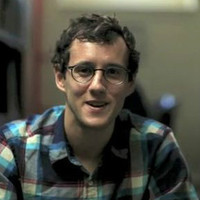Dayna Tortorici is the editor of n+1.
“You can't fetishize conflict so much. Because conflict does generate a lot of good work, but it also inhibits a lot of good work. I think people do their best work when they feel good. Or at least don't feel like shit. ... So I've tried to create a culture of mutual encouragement. Especially when you're not paying anybody, that's all you can really offer.”
Thanks to TinyLetter and Wealthfront for sponsoring this week's show.










